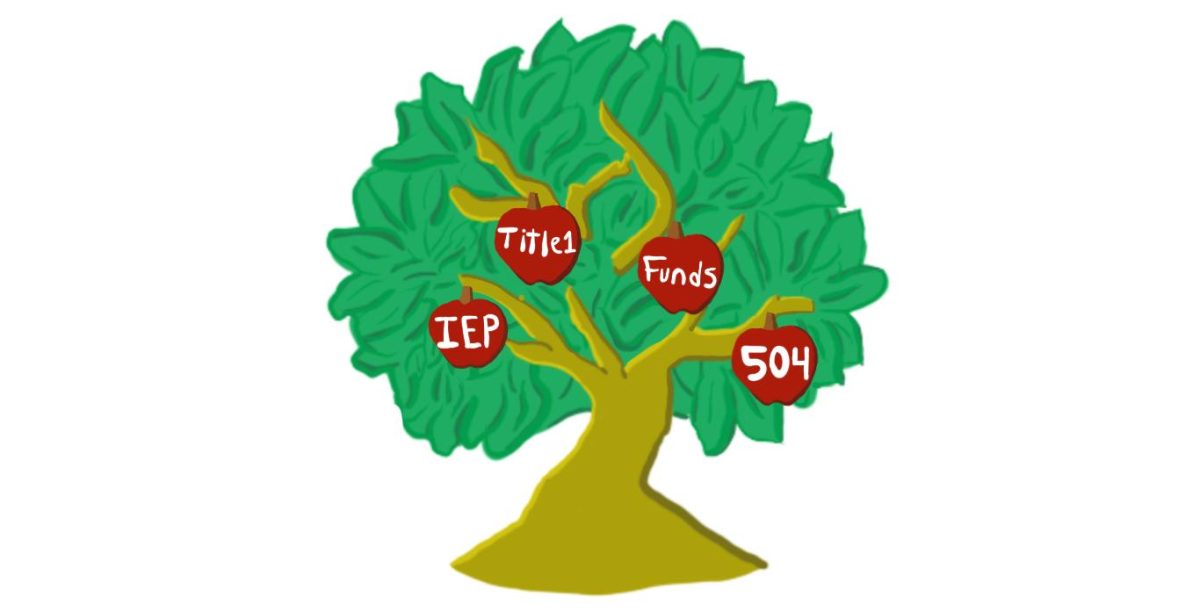YES: Should we stop genetically modifying foods?
Genetically modified organisms (GMOs) have been a topic of intense debate since their introduction into the food supply in the 1990’s. While GMOs became appealing for increased crop yields and improved nutritional content, these supposed benefits come with a heavy cost. America must put an end to the use of GMOs and the havoc they have released onto the environment.
While proponents argue that GMOs can help reduce the environmental impact of agriculture by reducing the need for chemical pesticides, there is evidence to suggest otherwise. For example, the use of GMOs has been linked to the development of herbicide-resistant weeds known as “superweeds.”
According to ‘Michigan State University,’ superweeds develop when herbicides are applied consistently over time to control weeds in a field planted with crops genetically modified to be herbicide resistant. The herbicide kills susceptible weeds while leaving a small number of resistant weeds unharmed. However, as time goes on GMOs are continuously used in conjunction with herbicides the resistant weeds grow in number and require more toxic herbicides to be used, essentially having the opposite effect intended.
The effects of GMOs go beyond a singular species of weeds. GMOs suppress and disrupt biodiversity. Genetically modified crops harm biodiversity through a reduction in the insects that serve as a source of food for wildlife such as birds. Research from ‘Cornell University’ found that when monarch butterflies feed on leaves covered in pollen from genetically modified corn, their growth becomes slower and they are more likely to die.
Additionally, GMOs can negatively affect biodiversity because they lead to increased monoculture farming practices. In fact, with GMOs, we lose more varieties of vegetables and fruits than the number produced. Gathering every “useful” characteristic means having only one type of tomato resistant to every insect and virus. According to ‘The Conscious Challenge,’ an environmental preservation organization, explains that this “monoculture” is the main problem linked to GMOs because it contributes to species extinction that has already been accelerated by climate change.
Furthermore, there are ethical considerations surrounding the use of GMOs in food. GMOs raise a threat to food sovereignty and perpetuate corporate control of the food supply. Biotechnology companies often patented GMOs, limiting farmers’ ability to save and exchange seeds. This raises concerns about the concentration of power in the hands of a few corporations,exacerbating economic inequality and stifling competition. Additionally, it highlights the potential exploitation of farmers in developing countries, leading to their economic vulnerability and dependency on these powerful entities.
The environmental organization, ‘Greenpeace,’ explains that the selling of GMOs traps farmers in debt cycles that reduce their ability to produce more food for consumption. The introduction of GMOs in a capitalist market exposes farmers to the exorbitant prices of genetically modified seeds and they are likely to be locked into debt cycles as they try to pay for seeds acquired through loans. This is detrimental for farmers who cannot afford to compete with corporations flooding the market with GMOs. This means developing countries are most at risk, for example, more than 80 percent of the food consumed in Kenya is produced by smallholder farmers according to the ‘Food and Agriculture Organization of the United Nations.’ This is why, as ‘Greenpeace,’ states, “GMOs are essentially being monopolized.”
In addition to these concerns, there are also alternative agricultural practices that can achieve similar goals without the use of GMOs. For instance, the ‘World Economic Forum,’ states that agroecological farming practices focus on enhancing biodiversity, minimizing the use of external inputs and building soil health. These practices have been shown to increase crop yields, reduce the need for chemical inputs, and improve resilience to climate change, thus offering promising solutions for sustainable agriculture and food security in a rapidly changing global environment.
While GMOs have been promoted as a solution to many of the challenges facing agriculture, significant concerns must be addressed. The potential health risks, environmental impact and ethical considerations associated with GMOs mean we should reconsider their use in our food supply. Moving forward, it is essential to explore alternative agricultural practices that can achieve similar goals without the destructive practice of GMOs.
NO: Should we stop genetically modifying foods?
The development of genetically modified organisms (GMOs) has sparked a debate if these GMOs are considered “safe” for human consumption. Through intense research, that question has already been answered with a definite yes. It comes with a variety of benefits, including being able to adapt to rough conditions, decrease the use of pesticides and be beneficial to human health. These crops can withstand harsh climates, such as droughts, differentiating temperatures, as well as fight against diseases. They have improved survival rates and are able to significantly increase yield.
A major academic review from the ‘National Center for Biotechnology Information’ (NCBI), states that, “GMO crops have allowed an average increase in agricultural yield by 22 percent and increased farmers’ profits by 68 percent.” These increased profits have shown an effect on a better quality of life, including better healthcare and education. It is especially valuable for people in Least Developed Countries (LDCs) and can contribute to an improved economy and greater food supply for citizens.
Data from the ‘OECD Development Matters,’ an organization focusing on the development of countries, shows that, “more than 251 million people in LDCs are severely food insecure.” The use of GMO crops has already decreased that number.
The benefit of higher yields comes with a multitude of benefits for the population, but there is another helpful aspect of GMOs, this being the decreased use of pesticides. Farmers will typically use a range of herbicides, insecticides, fungicides and fertilizers, to rid their crops of weeds, bugs, disease and to improve growth. However, the use of these has had long-term harm to the environment.
Chemicals used for agricultural purposes contaminate the ground and soil around it, as well as seep into nearby water sources and into the air. The introduction of these contaminants harms ecosystems, causes bioaccumulation of harmful chemicals, along with creating problems of eutrophication and substantially decreases biodiversity. It can also sustainably harm the greenhouse gas process and increase global emissions, causing climate change and warming.
However, GMO crops have created significant reductions in pesticide poisoning cases due to reduced applications and levels of exposure. Due to inserting desired genes into seeds and crops, they are resistant to the harm pesticides would cause. There has been a substantial decrease in pesticides with farmers who take advantage of GMO crops.
Conversely, the increased use of GMO technology has benefited human health. Opponents to GMOs may say that new technologies may increase the risk of cancer, but there is no real evidence to back up that claim. With the introduction of GMO crops in the 1990’s in the U.S., there would have been a prevalence of increased cancer rates due to this technology, yet there isn’t. According to ‘Healthline,’ an American Health Website, “The American Cancer Society states there is no evidence that currently available GMO foods either increase or reduce the risk of cancer.”
In fact, with the reduced use of pesticides in agricultural processes, the amount of pesticide exposure to farmers decreases. These chemicals are associated with cancer and reproductive issues, and the switch to pesticides has substantially decreased rates of health issues in regions such as South Africa, China, India and Pakistan. In China, according to the ‘NCBI,’ “One third of non‐[GMO] cotton farmers in China reported cases of pesticide poisoning, compared with 9 percent of [GMO] cotton‐producing farmers.”
Not only is there a decreased link to pesticide poisoning, but there is a decrease in farmer suicide in these regions after the introduction of GMO crops. As many farmers rely on their crops for their entire lives, the failure to grow can contribute to worsening mental health and with few resources in their rural location, GMOs can be helpful to decrease these rates.
GMOs are crucial tools that come with many benefits, and while there are fears around the technology, the pros outweigh the cons. The ability to produce higher yields, and decrease pesticides, are able to help the environment and human populations to become more efficient and effective during this day in age.









